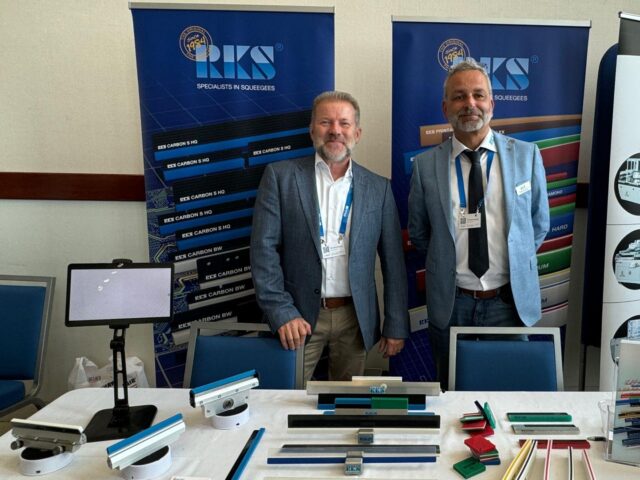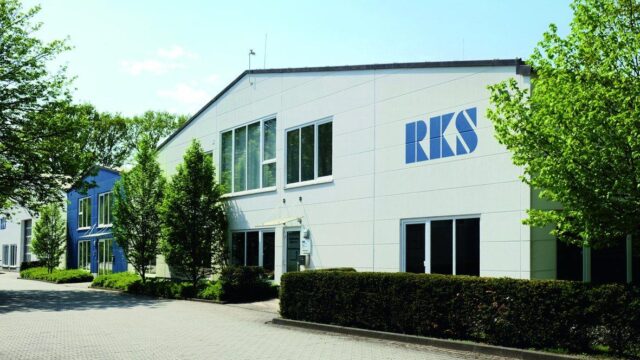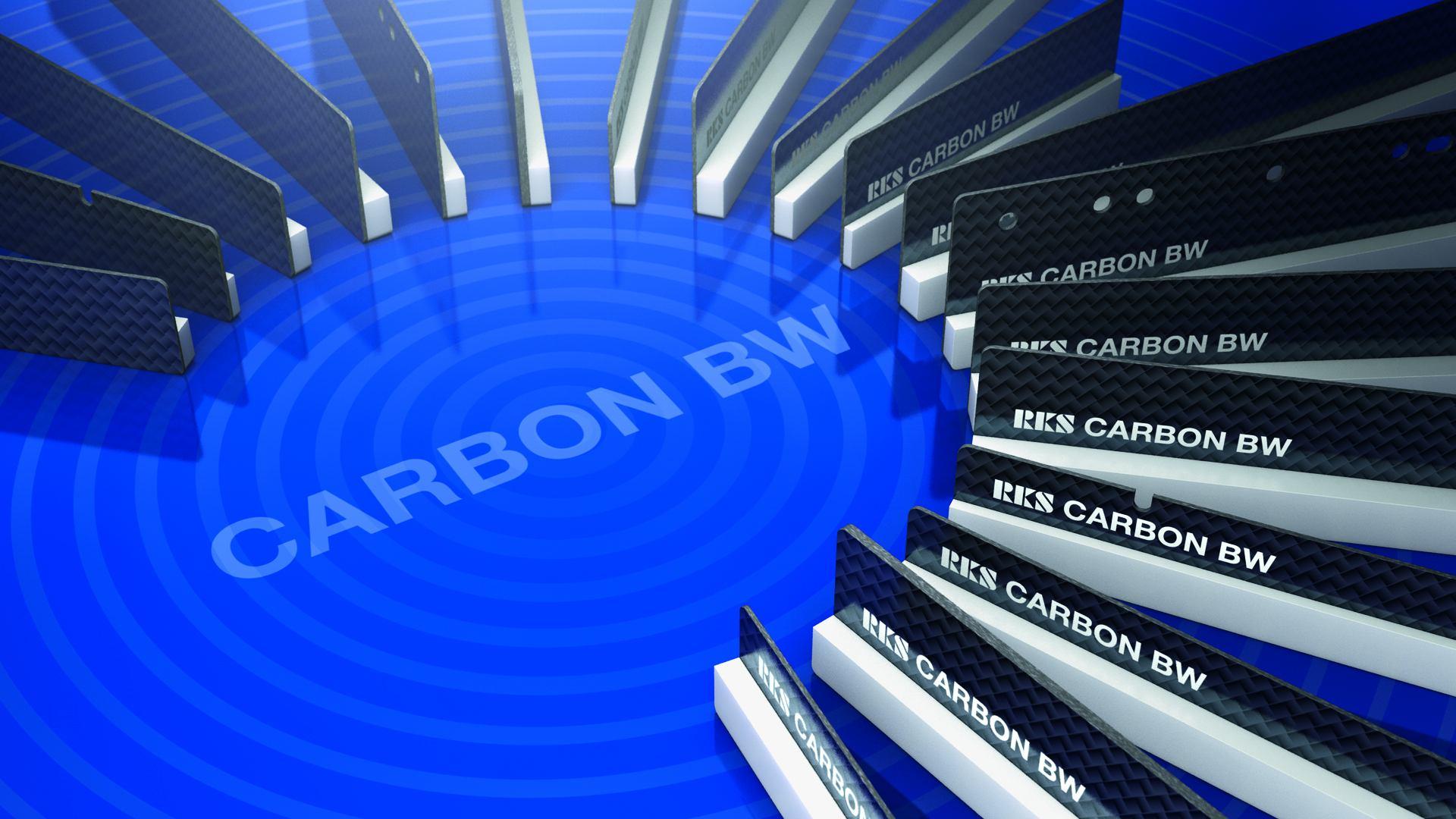PRO Flextronics sat down with Stefan Winter, Managing Director of RK Siebdrucktechnik, for an exclusive interview on the occasion of the 40th anniversary of the company based in Rösrath, Germany.
Mr Winter, let’s start with the history of RKS, founded in 1984. How did it all begin – and what were some of the milestones along the way?
Stefan Winter: RKS emerged from a small department within Kürten & Lechner GmbH, which was attached to the print shop. In the early days, the company was still using both screen and offset printing. Kürten & Lechner has been around since 1895, having started out as a repro operation.
Rudolf August Kürten had the idea to stabilise the squeegees in screen printing, which at the time kept bending and swelling. He was a hobby boat builder and therefore used glass fibre-reinforced plastics to stiffen the squeegees. Kürten then built the first small test moulds to join the strips together, with good results. In fact, these results were so good that other partner companies and print shops that we were in friendly contact with at that time, became interested in trying out our squeegee blades. This resulted in the foundation of the company RKS in 1984, with originally four people.
Gradually, the new company spun off from Kürten & Lechner, and from 1990 on, the separation became also spatial. We had our own small factory lines on 500-600m2, as well as some small offices. When I joined the company in 1990, we were already nine employees. The first site that was fully independent from Kürten & Lechner was located in Bensberg. There, the company further developed and established a network, while experiencing stable growth, until Mr Kürten passed away in 2007. In 2006, I became Managing Director of RKS, and after Mr Kürten’s passing, the entire responsibility for the management lay in my hands. Subsequently, we completely separated from Kürten & Lechner.
In 2007, we also merged with ThanTec GmbH – a specialist in polyurethane processing with touchpoints in screen printing technologies. As we continued to grow, we decided to move to Rösrath in 2009, where we then had 2,700m2 and 19 employees in our company. Nowadays, we have further grown to 25 regular employees. Moreover, we have recently applied for a patent
How is RKS structured today?
S. Winter: From the beginning, the department for graphic screen printing was our main area of activities. Since then, we have increasingly moved into the industrial screen printing sector. This includes automotive, medical technology, aerospace, and printed electronics – which is a major topic of the trade fairs that we are attending.
When it comes to the markets, I’d say that 25 percent is non-screen printing, while 75% is screen printing. This is our main share and it will certainly remain so for the time being. This sector continues to grow into areas that were previously not necessarily connected with that technology. Over the last 30 years, I have frequently been told that screen printing is dead, but there have always come up new, highly specialised markets to tap into.
How would you describe the unique selling point of RKS? What sets you apart from the competition?
S. Winter: RKS is one of only very few players – in Europe we may be the only one – who can adapt to the customers and find solutions together with them and other suppliers of peripheric devices. We are flexible when it comes to the requirements, special geometries, etc. – and we may be able to find a polyurethane compound that is a little more solvent-resistant. We are working together with various partners to find an ideal solution for the customer that they can then also use in their production process.

Considering the types of professionals that are usually attending the events that you exhibit at – like LOPEC and TechBlick, it would appear that your products require a lot of explanation . . .
S. Winter: Exactly! On the one hand, this is an advantage for us. On the other hand, it can be a very long road to convince new partners who want to sell the product for us. We are talking about relatively low sales figures, because these squeegee blades do not cost as much as a printing machine or 50kg of ink. However, it is precisely with these manufacturers that we try to enter into partnerships.
Ink manufacturers are highly focused on providing free samples of special pastes and colours to offer solutions for their customers. While the explanation of the product is straightforward, it’s challenging to engage salespeople – who are often on the go – to take a few minutes to understand the RKS product. This is why trade fairs like TechBlick and LOPEC are crucial. These platforms allow companies to showcase their products and emphasise that the initial time investment is worthwhile. In the end, a satisfied customer will buy the paint and paste because they work exceptionally well with this squeegee.
Let’s talk about printed electronics, which is still so often described as the market of the future. How was this market identified by RKS as a suitable target sector – and how do you currently perceive it?
S. Winter: I think it was due to my initial visits to LOPEC and specialised trade fairs. Moreover, our sales representatives and the networks we had already built by then were receiving more and more enquiries from this sector. At the beginning, our squeegee blades were mainly used in the solar industry: We started out with polyurethane and diamond squeegee blades – the classic ones. Subsequently, we were approached by machine manufacturers to develop more precise and stabilised doctor blades such as the Carbon-S products and others. We then carried out tests with these companies in their laboratories. Thus, the initial equipment for these machines already included RKS products at the customer.
New markets like printed electronics are certainly different in terms of volume compared to the graphics industry?
S. Winter: Yes, indeed. In the graphics industry, we were shipping squeegees at full length and they were cut to size by the customers themselves. We used to have an incredible number of kilometres that we sold, but always in full length pieces. Nowadays, we cut pieces, and the phases are being sanded – which is a higher production effort for us. However, there are many competitors who do not offer this sophisticated service of supplying a ready-cut, commissioned doctor blade.
So, is printed electronics the ideal future market for RKS?
S. Winter: Yes, I see the future there. Printed electronics can be used in so many different areas, be it in the medical sector, automotive, aerospace, or even fittings. If you look closely enough, there are printed elements everywhere.
It may be debatable whether it’s always screen printing: We are now seeing a shift with electronics also being printed digitally, or there are vapour-deposited elements. Devices are becoming thinner and thinner, and the performance is increasing. However, I do believe that screen printing will be able to play a big role in years to come.
We will certainly have to reorganise ourselves and continue development with other polyurethanes – better, more solvent-resistant, more semi-solid, even more precise edges. In the past, we have had a lot to do with mechanical engineers who required highest accuracies in their original specifications. However, already after the first print, a squeegee is automatically affected by the solvent and the printed material to some degree. This is something that we have to explain and communicate to those engineers who are not screen printers. After all, this is our main clientele today. We do not communicate with screen printers in the development phase, but with engineers from the process and mechanical engineering sectors. They are grateful that there are people who can explain the details and who can help.
What will be your main focus at the upcoming tradeshows?
S. Winter: We have a new doctor blade that we call Carbon-BW. It involves a new blend of polyurethane. In principle, the clientele that typically attends TechBlick and LOPEC are exactly the people we want to see at our stand and who are also welcome to visit us. But also colour developers, paste developers, and development engineers who have new ideas. We can truly offer a solution for everything that can be produced using the screen printing method.

RKS has reached its 40-year milestone. What are your thoughts on this occasion – and how are you going to celebrate?
S. Winter: For our employees and their family members, there will probably be a small celebration. For our customers, we will have some special offers in our product range.
In terms of our future, obviously, we will have to deal with the same uncertainties and issues that all companies are faced with: staffing problems, delivery issues, and also global political issues. On the other hand, I have been with this company for 34 years, and we all identify very strongly with our market and what we do. Therefore, I can already picture another expansion in size, because the 2,700 square-metres have almost reached their limits again – and the same counts for our current staff numbers.
RK Siebdruck


